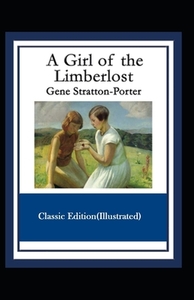Take a photo of a barcode or cover
emotional
lighthearted
reflective
slow-paced
Strong character development:
Yes
Loveable characters:
Yes
Diverse cast of characters:
No
Flaws of characters a main focus:
Yes
Not as good as Anne of Green Gables or Little Women, but in the same vein. I did learn a bit about butterflies and moths, though.
A Girl of the Limberlost (The Library of Indiana Classics) by Gene Stratton-Porter (1984)
First of all, this seemed like two separate books crammed into one. I thought it should have ended when Elnora reconciled with her mother. The romance portion was not only boring, but also largely offensive. The love triangle aspect only made Phil look like a disposable idiot. How could he be so in love with Edith? He said it was her looks. Great guy, that one. What a catch. And why does Elnora even need a man/husband? All he seemed to do was discourage her from attending college. Ass-wipe. And him a Harvard grad. And her being so prudish - ok, I know this was written in 1909. But, is passion a new thing? Women didn't experience attraction back then? If she'd really wanted him, she could have been just a pinch enthusiastic. Every hero/heroine should have some sort of weakness, but Elnora had none. Instead of making her awesome, her 100% virtue made her preachy and off-putting and non-relatable. I loved Freckles and thought it was a five-star book. I'm told that Girl of the Limberlost is Stratton-Porter's chef-d'oeuvre. But I don't see it. While I did love the writing and the devotion to Nature, the plot and characters left me unsatisfied and resentful. I wanted Elnora to join a street gang and become a pick-pocket. Or start some wild lesbian affair with the Bird Woman. Or become addicted to snuff - anything other than her annoying uprightness. Alas, no such luck.
I read this as a girl, then picked it up as an adult. My mother introduced me to them, having remembered the series from her own childhood. Lovely old-fashioned sweet simple storytelling.
Loved this book as a teenager. The writing is a little stiff (every few pages someone's face "whitens" with horror or fear or dread) but the descriptions of food and the swamp and the moths and butterflies was lovely. And the story was as charming as I remembered, once I had become used to the writing style and language again.
Rereading this for the first time in 30 years, while I find some plot aspects quite dated, Stratton-Porter's love of nature, her amazing descriptions of the Limberlost, and the importance of being in touch with nature are a faint, feminized echo of Thoreau.
This was a mandatory read for my Indiana Lit. class but I ended up really enjoying it.




